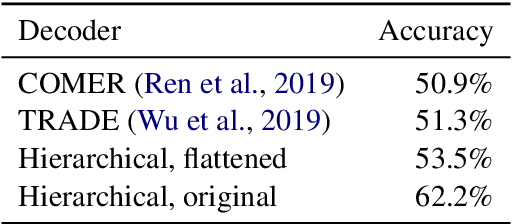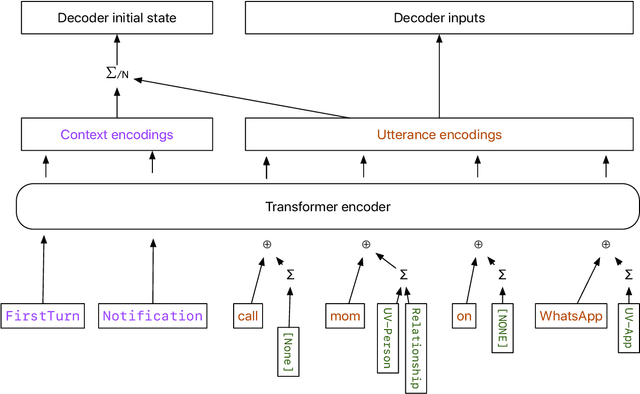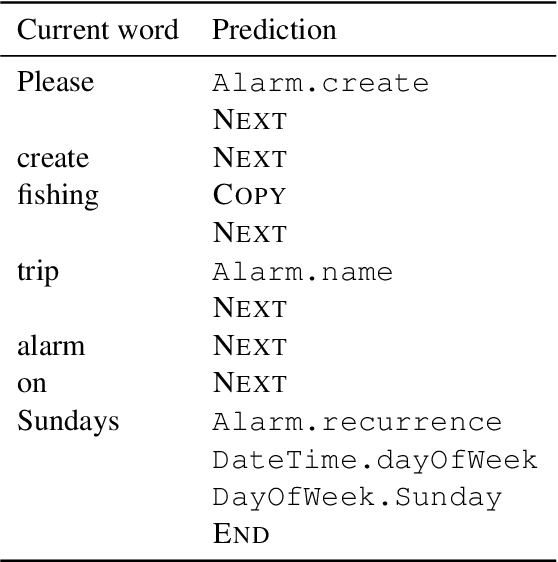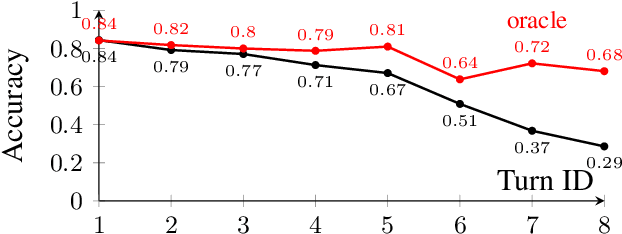Federico Flego
Intelligent Assistant Language Understanding On Device
Aug 07, 2023



Abstract:It has recently become feasible to run personal digital assistants on phones and other personal devices. In this paper we describe a design for a natural language understanding system that runs on device. In comparison to a server-based assistant, this system is more private, more reliable, faster, more expressive, and more accurate. We describe what led to key choices about architecture and technologies. For example, some approaches in the dialog systems literature are difficult to maintain over time in a deployment setting. We hope that sharing learnings from our practical experiences may help inform future work in the research community.
Conversational Semantic Parsing for Dialog State Tracking
Oct 24, 2020



Abstract:We consider a new perspective on dialog state tracking (DST), the task of estimating a user's goal through the course of a dialog. By formulating DST as a semantic parsing task over hierarchical representations, we can incorporate semantic compositionality, cross-domain knowledge sharing and co-reference. We present TreeDST, a dataset of 27k conversations annotated with tree-structured dialog states and system acts. We describe an encoder-decoder framework for DST with hierarchical representations, which leads to 20% improvement over state-of-the-art DST approaches that operate on a flat meaning space of slot-value pairs.
 Add to Chrome
Add to Chrome Add to Firefox
Add to Firefox Add to Edge
Add to Edge